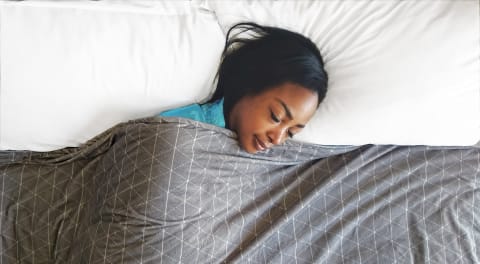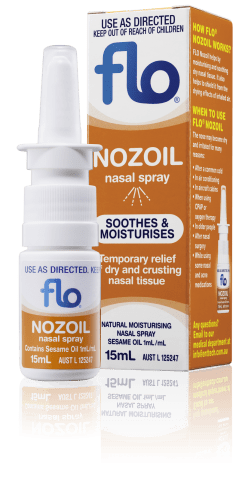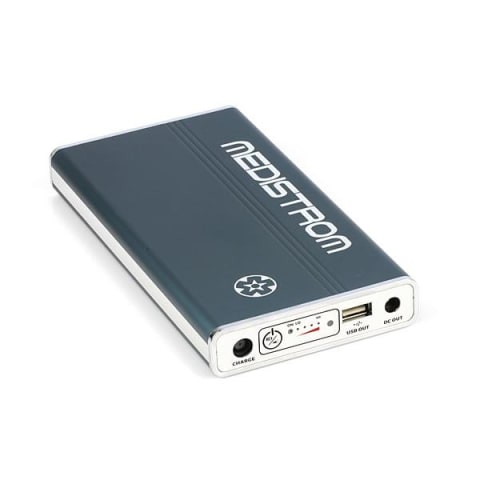CPAP and Camping
Embarking on a camping adventure doesn’t mean you have to sacrifice your CPAP therapy. Whether you’re exploring the Australian bush, enjoying a weekend in a caravan, or setting out on a cross-country road trip, maintaining your sleep health is both feasible and essential.
Thanks to advancements in portable CPAP equipment and power solutions, staying compliant with your therapy while off the grid has never been easier. With the right preparation and gear, you can relish the great outdoors without compromising your sleep quality.
Should You Still Use a CPAP Machine While Camping or Off-Grid?
It might be tempting to leave your machine behind “just for the weekend,” but skipping CPAP therapy—even for a night or two—can lead to poor sleep, fatigue, and snoring, all of which could affect your ability to enjoy your trip. More importantly, if you’ve been diagnosed with moderate or severe obstructive sleep apnea (OSA), going without your machine may increase your risk of heart strain, blood pressure spikes, and next-day tiredness.
If you’ve ever camped without CPAP before, you may have noticed symptoms returning quickly: headaches, dry mouth, poor concentration, and daytime sleepiness. There’s no need to go through that. Thanks to modern travel CPAP machines, battery packs, and solar power options, it’s easier than ever to take your therapy with you.
Think of CPAP the same way you would medication—you don’t skip it just because you’re on holiday. The good news is that with a few simple adjustments, CPAP therapy can be a seamless part of your next outdoor adventure.
How Can I Make My CPAP Machine Work While Camping?
The biggest hurdle to using CPAP in the great outdoors is power. Fortunately, there are a few reliable options to keep your machine running overnight:
Manufacturers like ResMed and Philips offer battery packs designed specifically for their machines. These compact batteries are ideal for short camping trips, often delivering 1–2 full nights of therapy per charge.
2. Car Power
If you’re camping with access to your car or van, you can use your vehicle battery to power your machine. Most CPAP brands offer DC converter cables or 12V adapters to connect directly to a cigarette lighter socket. You’ll need to make sure your battery is charged, and ideally run the engine for a bit each day to maintain battery life.
3. Portable Power Stations
The ResMed Power Station II (RPS II) is a lightweight, all-in-one external lithium-ion battery designed to power compatible ResMed devices when mains power is unavailable. It’s an ideal solution for travel, camping, or as a backup during power outages.
Keep in mind that humidification and heated tubing increase power use, so turning these features off while camping can extend battery life significantly. Many users switch to waterless humidification or go without for a night or two to conserve energy.
*Why the ResMed AirMini Is Perfect for Camping and Travel**
When it comes to off-grid adventures or frequent travel, not all CPAP machines are up to the task. The ResMed AirMini stands out as a top choice for campers, hikers, and vanlifers thanks to its smart design and travel-optimized features.
Ultra-Portable Design
Weighing just 300 grams (0.66 lbs), the AirMini is one of the lightest CPAP machines available. Its compact build slips easily into a backpack, glovebox, or carry-on—ideal for those packing light or traveling off the beaten path.
Energy Efficient for Off-Grid Use
The AirMini consumes significantly less power than standard CPAP units, making it a solid option for battery use. Whether you’re camping without electricity or conserving energy in a van, this efficiency extends your runtime and cuts down on power needs.
12V DC Compatibility for Mobile Power
With an optional DC?DC converter, the AirMini supports 12V power input, allowing it to connect directly to car outlets, RV systems, or portable battery packs. No inverter required—just plug in and breathe easy under the stars.
Humidification Without the Hassle
Traditional humidifiers can be bulky and spill-prone. The AirMini uses HumidX cartridges, which provide waterless humidification through heat and moisture exchange. It’s a hassle-free solution for dry environments or long trips where water access is limited.
Quiet and Travel-Durable
Built for real-world travel, the AirMini is durable enough for rugged use yet quiet enough (approx. 30 dB) for shared sleeping spaces like tents or vans. You—and your companions—can sleep without distraction.
Sleep Well, Wherever You Camp
Camping with a CPAP machine is not only possible—it’s easier than ever. Whether you’re setting up under the stars or parking your caravan in the bush, modern travel CPAP solutions like the ResMed AirMini and portable power options such as the ResMed Power Station II (RPS II) make it simple to maintain your therapy off-grid.
By planning ahead and choosing the right gear, you can enjoy uninterrupted sleep, improved energy, and better health—even when you’re miles from home. Remember, consistent CPAP use is essential, no matter where your adventures take you.
At Sove CPAP Clinic, we’re here to help you find the best travel-ready setup for your needs. Contact our team today to explore your options and ensure restful nights on your next camping trip.
ALWAYS FOLLOW THE DIRECTIONS FOR USE. CPAP is used for Obstructive Sleep Apnoea treatment. When considering whether CPAP is right for you, speak to your doctor.
Frequently Asked Questions
What accessories do I need to run my CPAP machine while camping?
When heading out on a camping trip with your CPAP, the right accessories can make all the difference. At a minimum, you’ll want:
- A portable power source: This could be a CPAP-specific battery pack, a portable power station, or a 12V DC adapter to run your machine from your vehicle.
- Power adapters and cables: Make sure your machine’s manufacturer has approved any DC cable or inverter you plan to use. For instance, ResMed machines require specific converters.
- A backup charging solution: If you’ll be off grid for multiple nights, consider a solar panel to recharge your battery during the day.
- Waterless humidification: ResMed’s HumidX capsules can be used with the AirMini to avoid the need for distilled water.
- Cleaning supplies: Travel-friendly mask wipes, non-alcoholic spray cleaners, and replacement filters help keep your equipment sanitary when water access is limited.
- Storage case or dry bag: Keep your gear clean and protected from dust, dirt, or rain.
Can I use a car battery for a CPAP machine?
Yes, but with a few important considerations. If your CPAP supports DC input (many ResMed and Philips models do), you can connect it to a car battery using a 12V DC adapter. If your machine doesn’t support DC, you’ll need an inverter to convert 12V DC to 240V AC.
You’ll also want to:
- Use a dedicated deep-cycle battery or a dual battery setup if possible
- Avoid draining your car’s main starter battery overnight
- Monitor voltage levels if you’re running other devices
Some people keep the car idling to recharge, but a portable power station is a more reliable solution if you’re parked for an extended time. We recommend chatting with our team before your trip to make sure your setup is safe and compatible.
How long will an external battery run a CPAP machine?
It depends on several factors:
- Battery capacity (Wh or Ah rating)
- Your CPAP’s pressure settings
- Whether humidification and heated tubing are on
- Machine model efficiency
As a rough guide:
A 95Wh battery like the Medistrom Pilot-24 Lite may power a travel CPAP for one night (6–8 hours) without humidifier
If you turn off humidification and ramp settings, you’ll get significantly longer runtimes. Some batteries also support stacking or solar charging, extending your total usage time. It’s worth testing your setup at home before relying on it in the bush.
Can I use tap water in my CPAP when camping?
Distilled water is ideal because it prevents mineral buildup in your humidifier chamber. But when camping, you may not have access to it. In that case, you can use clean tap water or bottled water as a temporary solution.
Tips:
- Boil tap water and let it cool before using it, especially in remote areas
- Rinse the humidifier chamber thoroughly with clean water each morning
- Use a vinegar rinse (1:3 vinegar to water) once back home to descale any deposits
- Switch to waterless humidification (such as ResMed HumidX) if you want a no-water option
- Frequent travellers often keep a spare humidifier tub just for camping, so they don’t worry about damage to their primary setup.
Will Medicare pay for a travel CPAP machine?
Medicare Australia does not typically cover the cost of travel CPAP machines. However, you may have alternative options:
Private Health Insurance: Some private health funds offer rebates for CPAP machines, including travel models, under their extras cover. The rebate amount and eligibility can vary significantly between funds and depend on your level of cover. It’s advisable to check with your specific health fund to understand your entitlements













